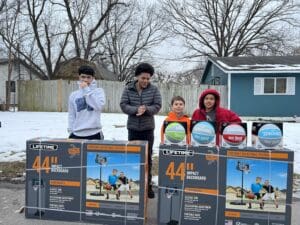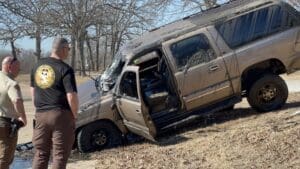Two men—one of whom, Steve Shibley, Sr., was Sapulpa born and bred, the other, LeRoy Smith, has strong Sapulpa ties—received a tremendous honor—inclusion in the Oklahoma Chapter of the National Wrestling Hall of Fame with Lifetime Service To Wrestling awards. These are “given in recognition of years of dedication to the development of leadership and citizenship in the youth through the sport of wrestling.”
Stephen Shibley, Sr. was born in 1950 in Sapulpa. He grew up playing a variety of sports, “but was a pretty serious wrestler,” says middle son Seth Shibley (who is the current Sapulpa High School Principal).
He attended NSU and upon graduation in 1972 was hired for his first job coaching wrestling at Sequoyah Junior High in Broken Arrow. From 1974 to 1986 he coached Sapulpa High School varsity wrestling, and he finished his coaching career at Charles Page High School in 1989. At that time he became SPS’s Athletic Director until his retirement in 2000.
Shibley coached 32 state placers, six state champions, and ten All-State wrestlers. He was selected to coach the All-State team in 1983.
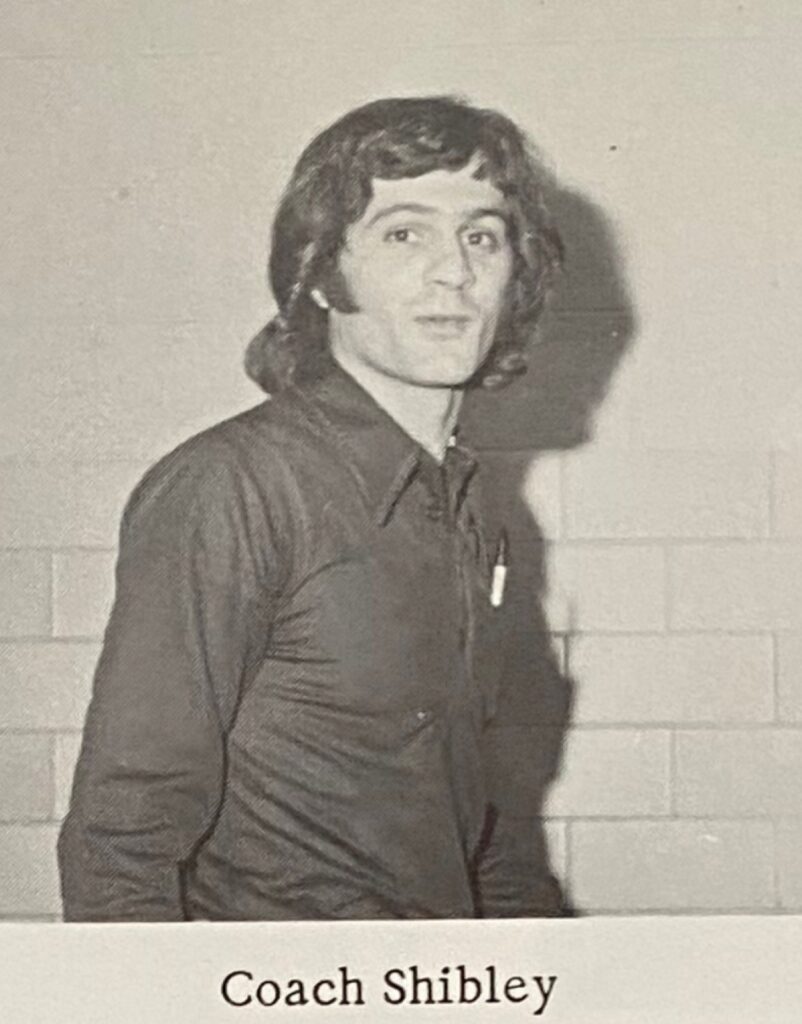
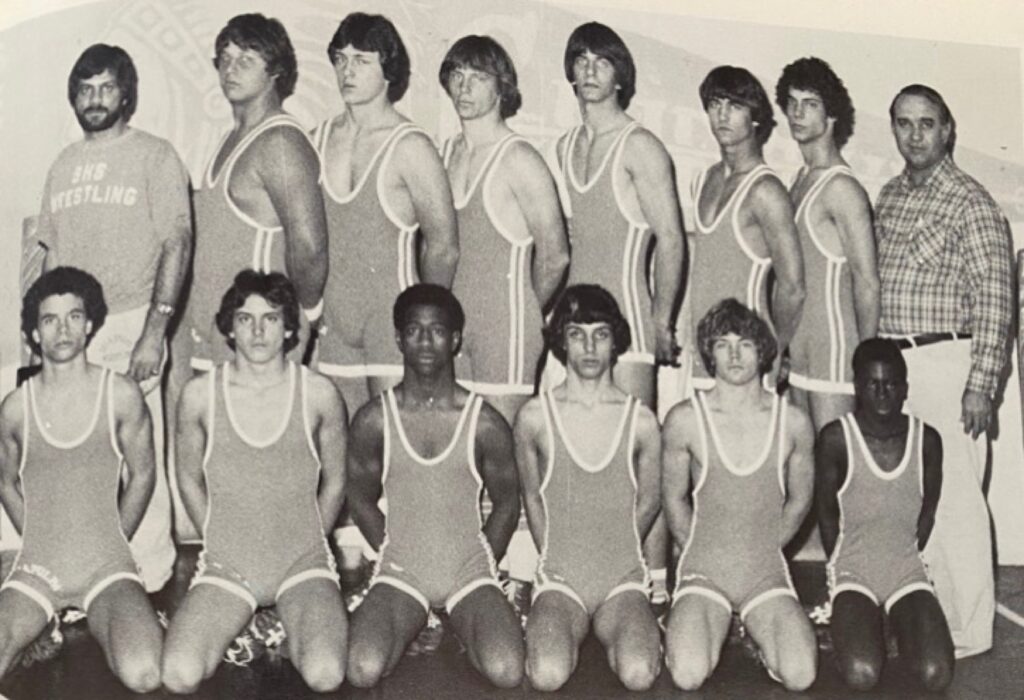
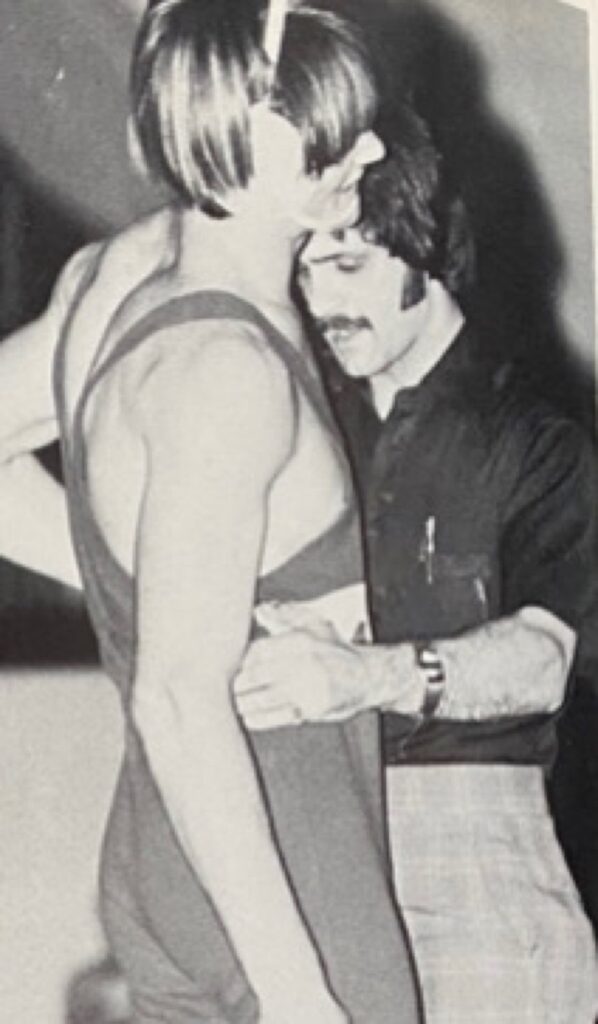
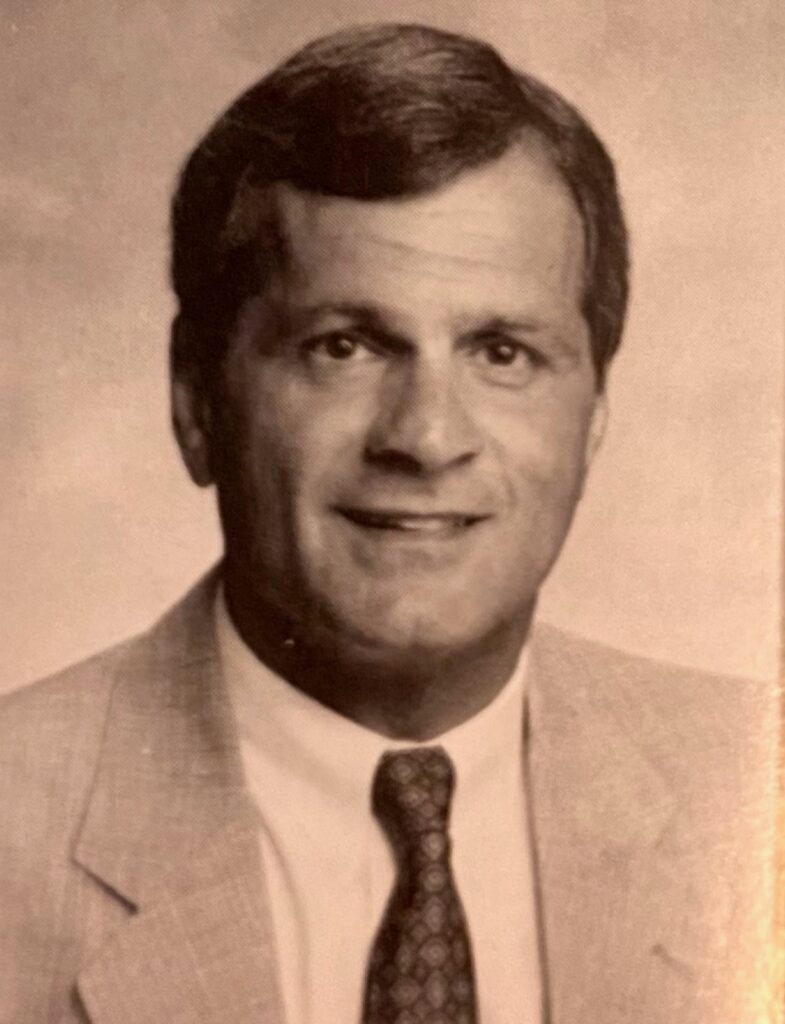
Shibley passed away in January of this year, and his family accepted his posthumous award on his behalf.
All three of Shibley’s sons were quick to mention the role his former wrestler Howard Seay played in his receiving this award. “He’s really the guy that got this stuff going,” Steve, Jr. said. “He’s a member of the [NWHOF] board. He tried two years ago, but dad fought him on it—‘I don’t need that.’ He fought and fought and fought. It’s sad we didn’t get it done before he passed, because he would have enjoyed it, but he never would have admitted it.”
Defining what made their father a Hall of Fame coach, Steve reflects, “He didn’t have all these unbelievable amounts of state champions, but he had a bunch of good blue collar kids who would fight for him and go through a brick wall for him.”

Seth echoes the sentiment, saying, “It’s neat to see–especially for a guy who didn’t win a bunch of state championships and didn’t have dynasties here, like you would think a Hall of Fame coach would have. It was different, it was more the lasting relationships he built, the toughness, the competitiveness. He didn’t really have a long tenure, relatively speaking, but I would say his impact was pretty big, as far as the kids he helped. He had really good teams; they were known for being tough and disciplined. And he made the best of what he had out there. If you ask any of his wrestlers, the impact he had was tremendous.”
As an Athletic Director, “He was at everything and he didn’t pawn stuff off on people. He loved it. He loved advocating for his coaches. He wasn’t going to let people run roughshod over them. They were going to know that he had their backs,” says Steve.
At the end of his SPS career, Shibley and former Superintendent Doctor Dodson worked to get the Chieftain Center built. “Dad fought tooth and nail to get what he could get for the wrestling program,” Steve remembers. “That’s part of his legacy.”
At the award ceremony, another well-known local wrestling persona, LeRoy Smith, was honored. Granddaughter Lisa Prescott, Program Coordinator for TSET in Creek County, gave the acceptance speech on his behalf. (Smith, 92-years young this year, sent his regrets for not being able to travel to the event, but said he was humbled to receive the award.)
“All my Papa wanted me to do was to get up here and say ‘thank you’ and go home,” joked Prescott, but she detailed his extensive involvement with wrestling (despite working at Sunoco Refinery in Tulsa for 38 years and keeping up with a multitude of civic commitments), and the impact his mentorship had on countless young people.
Prescott said that Smith is “the ultimate volunteer,” having given “tens of thousands of hours” of his time over his lifetime. He “is well-known with wrestling programs in and around the West Tulsa, Glenpool, and Bixby areas, as well as around the state of Oklahoma.”
Though the award recognizes a “lifetime commitment to wrestling,” Prescott says that, for her grandfather, “it is the recognition of his lifetime of commitment to young people.” Wrestling just happens to have “allowed him to teach and to help shape the character, self-discipline, and moral compass of many, many young people throughout his lifetime.”
Smith began his coaching career at the Blue T. Wrestling Club at Tulsa’s Webster High School in 1960, and in 1963, left to join the Bixby Wrestling Club. Smith also made time to work as a wrestling official for 25 years, and he served on the Glenpool school board for eight years.
“His love of wrestling led him to implement an elementary wrestling program that later evolved into Glenpool’s first high school wrestling team in 1976,” Prescott said. “He served as a volunteer assistant coach for 45 years in the junior and senior high wrestling programs,” only retiring in 2021. “He served as a volunteer assistant under 7 different high school varsity coaches at Glenpool.”
As with Shibley, Prescott said that Smith’s impact is maybe best felt when approached by past and present wrestlers or their parents who wish “to report their life updates and to express their gratitude for his role in their lives. They always knew he was in their corner, and they recognize the values they learned from him were instrumental in the successes they enjoy in their current lives.”
Shibley’s youngest son, Adam, says of the HOF induction, “It’s flattering, and I think it’s one he almost would have been embarrassed to get. That’s who he was. He would have felt undeserving, even though the statistics were there. He just wanted to do his job.”
“For me, the best part of this award was hearing stories that I remember fragments of, tiny little pieces of. Hearing them from different perspectives, hearing the impact he made—that’s the best part.”



